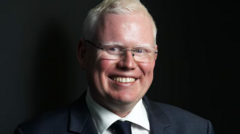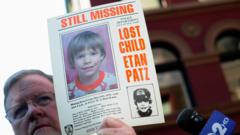Once hailed as a national hero in Ireland, Conor McGregor's reputation has plummeted following a jury's sexual assault verdict. Retailers, brands, and fans are distancing themselves from the fighter amid calls for accountability and a cultural shift regarding perceptions of sexual violence.**
Fallout from McGregor's Court Verdict: The Rejection of a Former Hero**

Fallout from McGregor's Court Verdict: The Rejection of a Former Hero**
Conor McGregor faces severe public backlash after a Dublin jury finds him guilty of sexual assault, leading to widespread condemnation and the removal of his brand from shelves.**
Conor McGregor, once celebrated as Ireland's sporting icon, is grappling with the repercussions of a jury verdict in Dublin that found him guilty of sexual assault. The decision has catalyzed a significant shift in public sentiment against the fighter, prompting an array of brands and retailers to sever ties with him.
A civil jury ruled in favor of Nikita Hand, who accused McGregor of rape in a December 2018 incident, awarding her nearly €250,000 (£208,000) in damages. The backlash was almost immediate; McGregor's products began vanishing from retail shelves, murals honoring him were painted over, and marketing partnerships were canceled. Even Proximo Spirits, which acquired his Proper No Twelve whiskey brand in 2021, announced that it would discontinue using his name or likeness in promotions.
The fallout from the verdict is telling of a larger societal shift. Once a beloved trailblazer for mixed martial arts in Ireland, McGregor now finds himself shunned by many former supporters. Petesy Carroll, an MMA journalist, reflects that while McGregor helped popularize the sport, he has also contributed to a decline in its standing within Ireland.
McGregor's rise began in 2013 with his entry into the UFC, following a path that transitioned from an unheard-of sport to mainstream popularity. His initial charm and captivating persona resonated particularly well during Ireland's economic decline following the 2008 recession. He became a symbol of resilience and national pride, encouraging his compatriots to embrace their identity during challenging times.
However, as his career soared, numerous controversies, including a series of legal issues, marred his legacy. Once hailed as Sportsperson of the Year, his dramatic descent has polarized the public’s view of him, culminating in the recent court verdict that many see as representing a cultural watershed moment.
Calls to action were sparked in the aftermath of Ms. Hand's case; Irish NGO, the Dublin Rape Crisis Centre, reported a surge of inquiries about support services following the verdict. Rachel Morrogh, the center's CEO, noted the broader conversation about sexual violence in Irish society, suggesting that McGregor's case may serve as an important focal point for cultural change.
As certain establishments react by removing images of McGregor—such as a gym in Galway that hastily painted over a mural of him—there is a clear message being transmitted: hero worship can shift swiftly in the face of serious wrongdoing.
The weight of public opinion against him is palpable. Local business owners express disappointment and a rejection of McGregor as a role model. Gary Scully, owner of Scully Fitness, remarks, "People want nothing to do with him; they don’t want to see him or put money his way."
With McGregor's standing significantly tarnished, the future of his career—once so promising—remains uncertain as he contemplates an appeal against the jury's decision and plots his next steps in the sport.



















